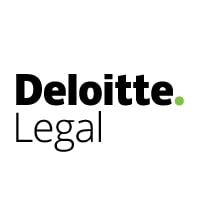
General counsel, chief compliance officer and head of corporate governance | Iveco Group


Gabriella Porcelli
General counsel, chief compliance officer and head of corporate governance | Iveco Group
How do you approach managing legal aspects during periods of instability or crises, and how does your legal strategy align with the broader business strategy to ensure the organisation’s resilience?
Permacrisis is a term that is now part of our vocabulary. It is essential to remain close to the business on a daily basis to support but also to prevent decisions being taken with a short-term view.
That means adopting a proactive risk management strategy, identifying potential legal risks early and developing comprehensive contingency plans to address them, while keeping the team motivated and engaged.
Our legal strategy is closely aligned with the broader business strategy. By understanding the organisation’s key objectives, we ensure that our legal actions support these goals, protecting the company’s assets, reputation, and stakeholder interests. We reach this goal by different means, for instance by attending business meetings and by adopting a proper communication strategy.
How do you measure the impact of ESG initiatives on the company’s overall performance and reputation?
One possible way to measure the impact of ESG initiatives on the company’s overall performance and reputation is to use a framework such as the Global Reporting Initiative (GRI) Standards, which provide guidelines and indicators for reporting on sustainability issues. The GRI Standards cover topics such as environmental, social, and governance performance, stakeholder engagement, materiality assessment, and impacts and outcomes. By using the GRI Standards, IVG yearly communicates its ESG performance in a transparent, consistent, and comparable way, and demonstrate how it contributes to the Sustainable Development Goals (SDGs).
Another way to measure the impact of ESG initiatives on the company’s overall performance and reputation is to use a rating or ranking system that evaluates and compares the ESG performance of different companies, such as the Dow Jones Sustainability Indices (DJSI). These systems use various criteria and methodologies to assess the ESG performance of our company and Iveco Group is listed as one of the top-ranked companies within the Machinery and Electrical Equipment Industry in the S&P Global Corporate Sustainability Assessment.
How have you integrated technology into your legal processes, and what impact has this had on efficiency and compliance?
Digitalisation of a global legal and compliance department is crucial for enhancing efficiency and accuracy of support to the business, with a cost-consciousness, also to free up time for more valuable activities for lawyers, paralegals and compliance professionals. Solutions allowing for quick access to documents, online negotiation and documents storage/ retrieval, electronic signature – all this reduces the risk of human errors, improves collaboration and traceability of information and know-how (our assets). Additionally, it ensures compliance with regulations and protects sensitive data.
We embraced digital transformation, with the adoption of innovative tools and methodologies to streamline and automate legal and compliance tasks and processes, increase the quality and security of data and information, and take advantage of the potential offered by new technologies, on one side, to be also able to support digital transformation of the company.
Therefore, for us legal technology means digital tools, software, applications, and platforms which may allow our team to gain efficiency, accuracy, better collaboration and “time to customer”.
A further milestone in the digitalisation journey is the deployment of a portal for selecting external lawyers through a digital, interactive process, reaching standardisation, gaining traceability and transparency, improving fee negotiation and cost saving /cost control, as well as also allowing for our concrete contribution to Iveco Group ESG strategy, because through this platform we solicit an ESG accreditation of all the law firms we enroll.
We are also launching practical AI use cases that will bring benefits to some of our activities, such as legal audits, mock investigations and records’ analytics, etc..
Embracing digitalisation is not only about deploying tools and organisational measures. It’s about people, culture, and mindset. It’s about creating a “digital-first” culture where technology is seen not as a threat, but as an enabler of better professional performance, with less spending if possible. It’s about encouraging legal professionals to embrace new ways of thinking and working, and it’s about leading with vision and conviction.
What do you see as the major legal challenges for businesses in Italy over the next five years, and how are you preparing to address them?
We anticipate and adapt to changes in regulations, particularly in areas such as data protection (GDPR), environmental laws and Co2 emissions, as well as supply chain management. An effective communication and “response” strategy about regulatory developments is also crucial.
Addressing legal issues related to digital transformation, including cybersecurity, data privacy, and intellectual property protection, is our priority and should be so for all legal functions in-house, where appropriate. We develop robust policies and practices to safeguard digital assets.
Navigating the increasing focus on sustainability and ESG requirements is a significant challenge. We ensure that our ESG initiatives comply with legal standards and contribute to long-term value creation. We also take innovative initiatives like appraising if certain ESG requirements are met by external law firms we select.
Managing legal complexities arising from globalisation and international trade, including cross-border transactions, trade agreements, and supply chain regulations, is critical.
General counsel | Iveco Group